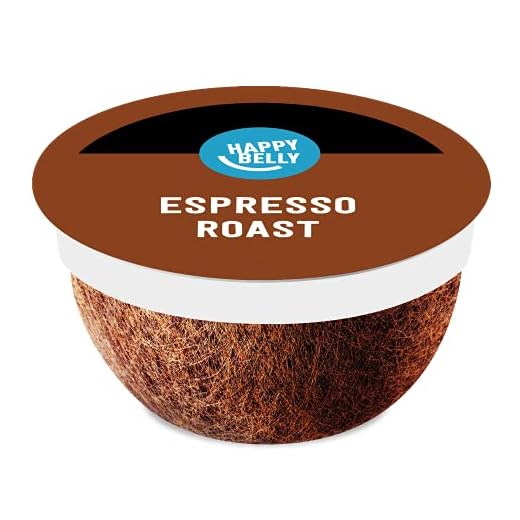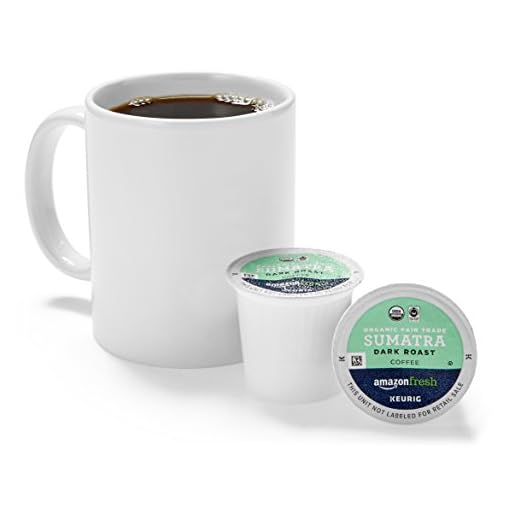Sip Sustainably: Your Guide to Organic Fair Trade Coffee
Welcome to the World of Organic Fair Trade Coffee
When you choose organic fair trade coffee, you make a statement. You say yes to quality. You say yes to sustainable practices that nurture the planet and support farmers. This coffee is not just a beverage; it is a movement for change.
Organic coffee is grown without harmful chemicals. Fair trade ensures farmers earn a fair wage. Both practices cultivate a better world. They empower communities and protect nature. When you sip, you are part of something bigger.
In this guide, you will learn why choosing organic fair trade coffee matters. You’ll discover how to pick the right beans and brew the perfect cup. Together, we can savor coffee that not only tastes good but does good. Enjoy the journey!




Discovering Ethical Bean: Fair Trade Organic Coffee Unboxing!
What is Organic Coffee?
Understanding Organic Coffee
Organic coffee is crafted with care. It comes from beans grown without synthetic fertilizers, pesticides, or herbicides. Farmers use natural methods to enrich the soil and control pests.
Farming Practices that Define Organic Coffee
The principles of organic farming include crop rotation and composting. These practices foster biodiversity. They enhance the health of the ecosystem. In addition, organic farming promotes sustainable water usage. This matters for your health because it means cleaner beans in your cup.
Organic farms often emphasize shade-grown coffee. This method preserves forests and supports wildlife. For every sip of organic coffee, you taste flavors that are richer and more complex. You also support a system that prioritizes health and safety, both for you and the planet.
Imagine savoring a cup of organic coffee, knowing that it was cultivated with respect for nature and humans alike. One example of great taste is the Tiny Footprint Dark Roast Nicaragua Coffee 16oz. It’s a rich, dark roast that embodies these principles.
As you explore organic coffee, also consider the fair trade aspect. In the next section, we’ll delve into how fair trade principles elevate the experience of your morning ritual.
The Heart of Fair Trade
Fair trade isn’t just a label; it’s a promise. It is rooted in principles that protect the rights of farmers and promote equitable trade.
Fair Wages for Farmers
When you choose fair trade coffee, your choice ensures farmers receive a fair wage. Many farmers live on less than $2 a day. Fair trade agreements guarantee they make a minimum price for their crops. This means better lives for them and their families. With fair wages, farmers can invest in education and health care, propelling their communities forward.
Sustainable Practices
Fair trade also promotes sustainable farming. This means using methods that respect the environment. Farmers can’t just focus on profit; they must consider the land. They often use organic methods, preserving soil health and protecting local ecosystems. You are buying a product that aligns with your values.
Real-World Impact
For example, one coffee co-op in Colombia received fair trade certification. They used their earnings to build a school. Now, children in the community can get an education. Your cup of coffee can open doors.
This commitment to fairness runs deep. Knowing your coffee supports human rights and sustainable practices makes each sip special. It’s a step toward a better world.
As you reflect on the heart of fair trade, consider how to choose your coffee thoughtfully. In the next section, we’ll guide you on selecting the right organic fair trade coffee for your daily brew.
The Benefits of Organic Fair Trade Coffee
When you sip organic fair trade coffee, you savor more than just taste. You embrace a healthier lifestyle while nurturing the environment and supporting communities.
Healthier for You
Organic coffee is free from synthetic chemicals and pesticides. That means your coffee contains fewer harmful residues. In turn, you consume a beverage that’s more natural. Many enjoy the smooth flavor profile of organic beans. They often describe a richer, fuller taste as compared to conventionally grown options. One excellent choice for flavor seekers is the Tiny Footprint Whole Bean Nicaragua Coffee 16oz.
Positive Environmental Impact
Beyond health benefits, organic farming promotes biodiversity. Farmers cultivate coffee among a variety of plants, which enriches the ecosystem. This practice enhances the soil quality and preserves surrounding wildlife. You’ll be drinking a cup that is not only delicious but also helps protect our planet.
Community Support
Fair trade ensures farmers earn fair wages, which is crucial for their development. With sustainable income, they can invest in their families and communities. Many farmers use what they earn to improve education, health care, and local infrastructure. Your choice directly contributes to uplifting those who grow your coffee.
As you dive deeper into the world of organic fair trade coffee, consider how to choose the right beans for your taste and values. In the upcoming section, we’ll explore the factors to keep in mind when selecting your perfect brew.
How to Choose the Right Coffee
Selecting high-quality organic fair trade coffee doesn’t have to be daunting. With some knowledge and awareness, you can find the perfect beans that resonate with your values and taste.
Look for Key Certifications
Start by checking for certifications. Look for symbols from organizations like Fair Trade USA or USDA Organic. These labels ensure the coffee meets strict ethical and environmental standards. They act as your assurance that you’re making a responsible choice.
Know Your Varietals
Explore different coffee varieties. For instance, Arabica beans are known for their smooth, mild flavor, while Robusta has a stronger, more bitter taste. Experiment with different origins, such as Ethiopian or Colombian, to discover which profiles please your palate.
Consider Roast Levels
Roast levels significantly impact flavor. Light roasts preserve more of the bean’s original character, offering fruity or floral notes. Medium roasts provide a balanced flavor. Dark roasts give bold, rich tastes. Identify what excites your taste buds.
Freshness Matters
Freshness can make or break your coffee experience. Buy whole beans whenever possible, as they retain flavor longer. Look for a roast date on the packaging and aim to choose beans roasted within the last month.
Read Reviews
Lastly, consult reviews and recommendations. Online platforms and specialty coffee shops often provide insights from fellow coffee enthusiasts. This feedback can guide you in making informed choices.
Now that you are equipped with tips for choosing quality organic fair trade coffee, let’s dive into how to brew the perfect cup that brings out the best flavors and aromas.
Brewing the Perfect Cup
Brewing organic fair trade coffee is an art. With simple adjustments, you can elevate your experience. Here’s how to do it right.
Grind Size Matters
Start by selecting your grind size based on your brewing method. For French press, a coarse grind is ideal. Drip coffee makers need a medium grind, while espresso requires a fine grind. Freshly ground beans create a stronger flavor. Invest in a burr grinder for consistency.
Water Temperature
Water temperature influences extraction. Aim for 195°F to 205°F. Too hot will burn the coffee; too cool will result in under-extraction. Use a kettle with a built-in thermometer, or let your boiled water sit for about 30 seconds if you don’t have one.
Coffee-to-Water Ratio
A general guideline is to use two tablespoons of coffee for every six ounces of water. Adjust this ratio based on your taste. A stronger brew? Increase the coffee slightly. Prefer a milder cup? Hold back a bit.
Brewing Time
Different methods require varying brew times. A French press typically needs about four minutes of steeping. Drip coffee machines usually take around five minutes. For espresso, aim for a 25 to 30-second extraction. Keep a timer handy to master your timing.
Additional Tips
Enjoy the exploration of flavor as you perfect your brewing technique. Next, let’s delve into how you can support the sustainable coffee movement with every sip.
Supporting the Movement
Every choice you make has power. When you choose organic fair trade coffee, you’re not just selecting a drink. You’re supporting a movement. Here’s how to deepen your impact.
Buy with Intention
Seek out certified organic and fair trade brands. Look for labels that represent your values. Companies like Equal Exchange and Kicking Horse Coffee highlight fair trade practices. Each purchase sends a message that you care about ethical sourcing.
Attend Local Events
Get involved in your community. Attend coffee tastings or farmer’s markets that showcase local organic roasters. This can be a fun way to learn more and connect directly with the people behind your coffee. Networking with like-minded individuals can also inspire your journey.
Spread the Word
Share your passion for organic fair trade coffee with friends and family. Post about your favorite brews on social media. Use hashtags to draw attention to the cause. Your enthusiasm can inspire others to make mindful choices.
Donate to Causes
Consider donating to organizations that support fair trade and sustainable agriculture. Groups like Fair Trade International and the Rainforest Alliance work to improve the conditions of coffee farmers. A small contribution can make a big difference.
Invest in Sustainable Brands
Look for companies that give back. Many brands reinvest a portion of their profits into coffee-growing communities. For example, some offer educational scholarships or health care initiatives. Support those efforts with your purchases. Every cup counts.
When you sip your organic fair trade coffee, remember the impact of your choice. It’s more than just a beverage; it’s a way of life. As we wrap up this journey, let’s reflect on the importance of sustainable sipping and living fully.
Sip Sustainably, Live Fully
As you sip your organic fair trade coffee, remember the impact of your choice. Each cup supports farmers who practice sustainability and ethics. You’re not just enjoying coffee; you’re part of a movement.
So, when you brew your next cup, think of the world it helps create. Every sip is a step toward a better future. Choose wisely, sip consciously, and enjoy your coffee. Support a better world with each delicious taste.



 Previous Post
Previous Post Next Post
Next Post